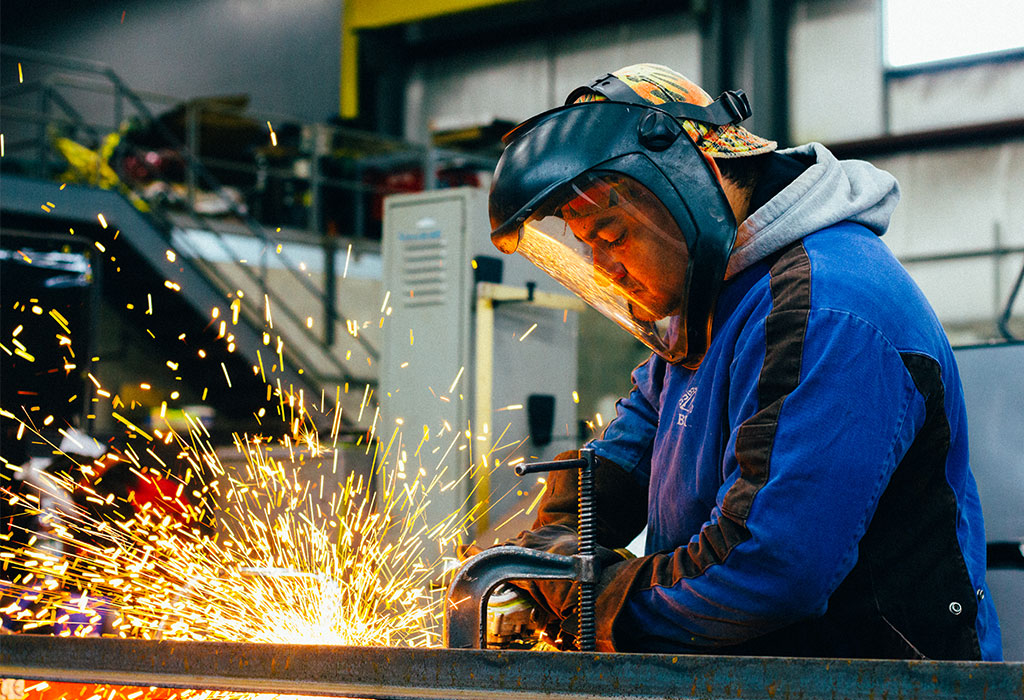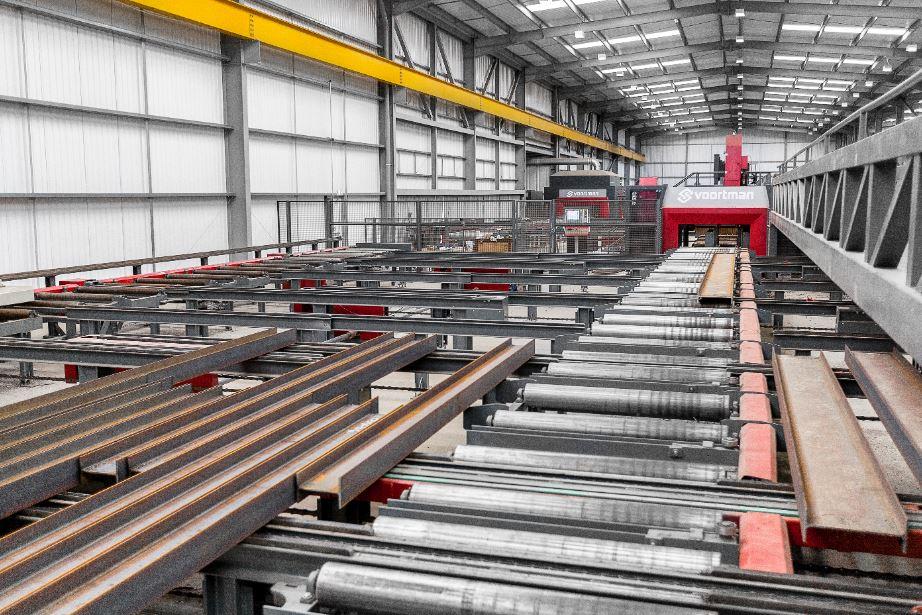Alpha Reo: Leading the Way in Reinforced Steel Solutions
Alpha Reo: Leading the Way in Reinforced Steel Solutions
Blog Article
The Ultimate Manual on Customized Steel Manufacture Solutions for Structural Projects
In the realm of architectural projects, the relevance of custom-made steel fabrication options can not be overstated. From the fundamental understanding of steel fabrication fundamentals to the intricate procedure of selecting the most suitable materials, every step in this trip plays a critical duty in the ultimate success of a job. As we browse with the complexities of layout factors to consider, fabrication processes, and quality assurance procedures, an extensive manual acts as a directing light for specialists seeking quality in steel fabrication services. Remain tuned to reveal the insights that can transform the method structural jobs are come close to and carried out.
Understanding Customized Steel Fabrication Fundamentals
Digging into the basics of personalized steel manufacture provides understanding right into the intricate procedure of changing raw steel into customized architectural parts. Custom steel manufacture is a specialized production strategy that includes cutting, shaping, and setting up steel materials to develop special frameworks according to certain project demands. Understanding the essentials of customized steel fabrication is important for making certain the effective implementation of structural projects.
The process normally starts with the assessment of job requirements and style demands. This first phase involves comprehensive planning and partnership in between designers, designers, and fabricators to identify one of the most ideal approach for fabricating the steel components. Accuracy is key throughout the manufacture process, as even small inconsistencies can impact the structural honesty of the final item.
Various techniques, such as cutting, welding, and shaping, are utilized to change raw steel right into the desired architectural components. Experienced fabricators use advanced machinery and devices to ensure accuracy and consistency throughout the manufacture procedure. Quality assurance steps are carried out to validate the stability of the produced components prior to they are assembled on-site, guaranteeing conformity with industry criteria and job specifications.
Choosing the Right Steel Materials

Primarily, the kind of structural job and its specific demands play a critical duty in determining one of the most appropriate steel products. Elements such as the load-bearing capability, ecological conditions, and desired life-span of the structure will certainly determine the quality and type of steel that must be made use of.
Moreover, the physical buildings of the steel, consisting of ductility, strength, and weldability, must line up with the project's needs to assure optimum efficiency and check my site toughness (steel fixing). In addition, factors to consider such as deterioration resistance, cost-effectiveness, and availability of the steel materials ought to also be considered during the choice process
Layout Considerations for Architectural Projects
Structural jobs necessitate precise attention to design considerations to make certain both functionality and security are focused on throughout the construction procedure. When it comes to making structural jobs, several crucial factors need to be taken into account to assure the success of the endeavor. By meticulously thinking about these facets during the layout phase, engineers and engineers can guarantee the architectural project's success from conception to completion.
Improving Construction Processes for Performance

In addition, executing lean manufacturing concepts can substantially enhance performance in steel manufacture. By reducing waste, enhancing workflow, and improving communication between different groups associated with the manufacture process, projects can be finished more quickly and with greater top quality standards.
Additionally, establishing a well-organized manufacturing timetable and operations can aid in focusing on jobs, assigning resources efficiently, and conference job target dates quickly. By having a clear strategy in place and regularly checking progress, any potential traffic jams or hold-ups can be recognized and resolved quickly, guaranteeing reliable and smooth manufacture procedures for structural jobs.
Quality Assurance and Task Monitoring in Steel Fabrication
To ensure the effective implementation of steel manufacture projects, meticulous quality assurance procedures and efficient project management methods are crucial parts in keeping precision and meeting customer assumptions. Quality control in steel construction entails extensive evaluations at numerous phases of the fabrication process to validate compliance with project specs and market requirements. This includes product testing, dimensional checks, and weld evaluations to make certain structural honesty and security.
Project administration plays an essential duty in working with the numerous facets of steel manufacture jobs, such as organizing, resource appropriation, and interaction among staff member. A distinct job plan with clear goals, milestones, and timelines helps to monitor progress and attend to any kind of prospective concerns proactively. Effective interaction between all stakeholders, consisting of clients, contractors, engineers, and producers, is essential for making certain that the job progresses smoothly and satisfies the preferred high quality criteria.
Conclusion
To conclude, personalized steel manufacture plays an essential function in architectural jobs by providing customized remedies making use of the ideal materials and view style considerations. Efficiency in fabrication processes, quality assurance, and efficient task management are crucial for successful results. By recognizing the fundamentals of customized steel manufacture and carrying out structured processes, task groups can provide sturdy and top quality frameworks that fulfill the details demands of their customers.
Custom steel construction is a customized manufacturing technique that entails cutting, shaping, and putting together steel products to create special structures according to particular job demands.To ensure the effective implementation of steel fabrication projects, careful high quality control measures and reliable job management methods are crucial components in maintaining find out this here accuracy and meeting client expectations. Quality control in steel construction includes rigorous examinations at various phases of the construction process to verify compliance with job specs and market criteria (steel fixing).Project management plays an important function in collaborating the different facets of steel construction projects, such as scheduling, source allowance, and communication amongst team members.In verdict, customized steel manufacture plays an important function in architectural jobs by offering tailored remedies utilizing the best products and design considerations
Report this page